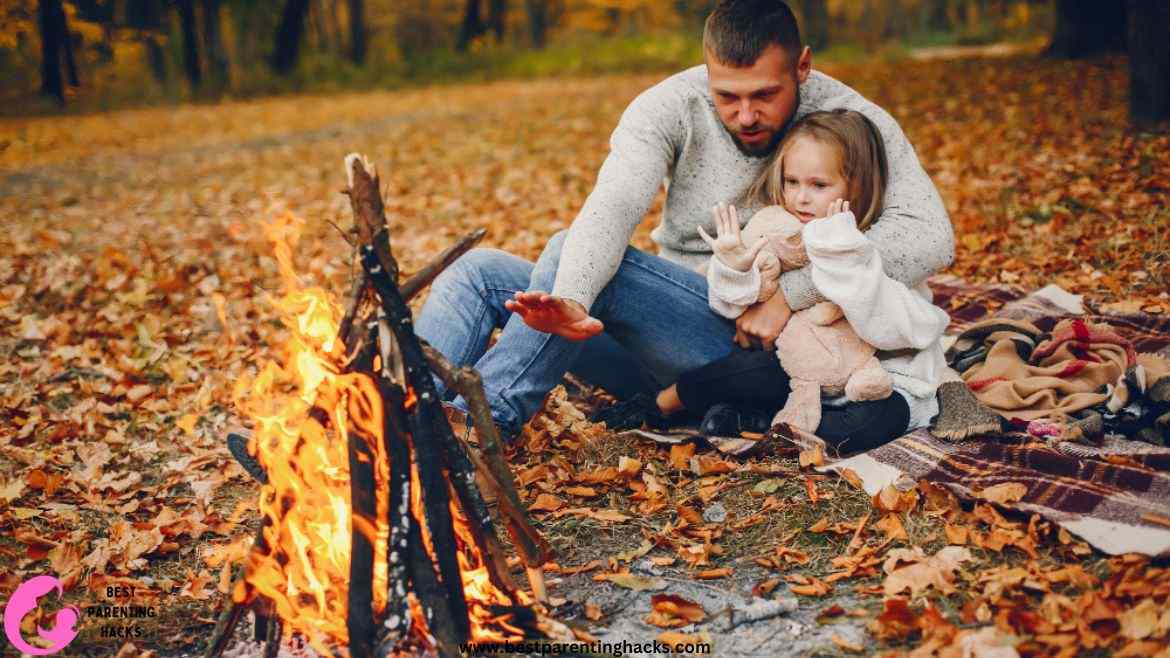Table of Contents
With their cozy atmosphere and warm glow, bonfires have long been a focal point of outdoor events. As an adult, I’ve frequently found myself wanting to introduce these comfortable, group activities to my child. But the worry for my safety is something that never really goes away. We’ll explore the several facets of bonfires and whether or not they’re appropriate for infants in this post, making sure that the family’s outdoor experiences are fun and safe.
The title question has more nuanced answers than not. It changes based on several variables, such as the baby’s age, health, and the particulars of the bonfire gathering. Even if there is nothing like a bonfire to make us feel better, our younger family members’ safety must always come first. To assist you in making an educated decision regarding involving your infant in bonfire activities, we’ll go over the hazards, recommendations, and alternatives in the following sections.
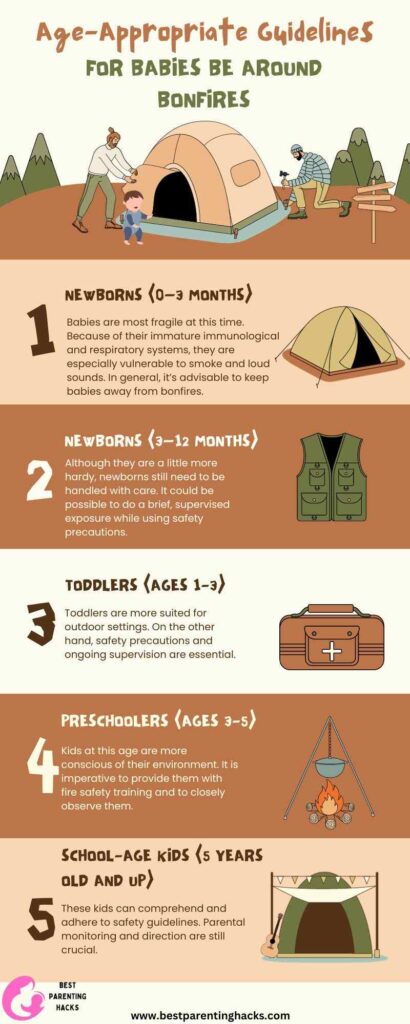
Age-Appropriate Guidelines
There are a few things to take into account when deciding when a baby is old enough to be near a bonfire:
1. Newborns (0–3 months): Babies are most fragile at this time. Because of their immature immunological and respiratory systems, they are especially vulnerable to smoke and loud sounds. In general, it’s advisable to keep babies away from bonfires.
2. newborns (3–12 months): Although they are a little more hardy, newborns still need to be handled with care. It could be possible to do a brief, supervised exposure while using safety precautions.
3. Toddlers (ages 1-3): Toddlers are more suited for outdoor settings. On the other hand, safety precautions and ongoing supervision are essential.
4. Preschoolers (ages 3-5): Kids at this age are more conscious of their environment. It is imperative to provide them with fire safety training and to closely observe them.
5. School-age kids (5 years old and up): These kids can comprehend and adhere to safety guidelines. Parental monitoring and direction are still crucial.
You Might Also Like to Read: The Average Time Parents Spend With Baby In NICU
Understanding the Risks for My Baby
There are several concerns connected to bonfires, particularly for infants whose bodies continue developing. Inhaling smoke is the main worry. A baby’s developing lungs may get irritated by the combination of hazardous particles and chemicals found in bonfire smoke. Long-term smoking exposure can aggravate asthma and cause respiratory problems.
An additional risk factor is noise pollution. A baby’s delicate hearing might be harmed by the high decibel levels of conversation, laughter, and firewood crackling. In addition, the unpredictable nature of a bonfire’s surroundings—sparks and temperature swings—presents further risks.
1. Smoke Inhalation: Babies who are exposed to smoke for an extended period may have sneezing, coughing, and respiratory distress.
2. Noise Levels: A baby’s sensitive ear structures may be harmed by loud noises, which might result in hearing problems.
3. Environmental Dangers: Hot embers and sparks can be erratic and harmful.
4. Air Quality: A baby’s respiration and general health may be negatively impacted by the generally bad air quality in the vicinity of a bonfire.
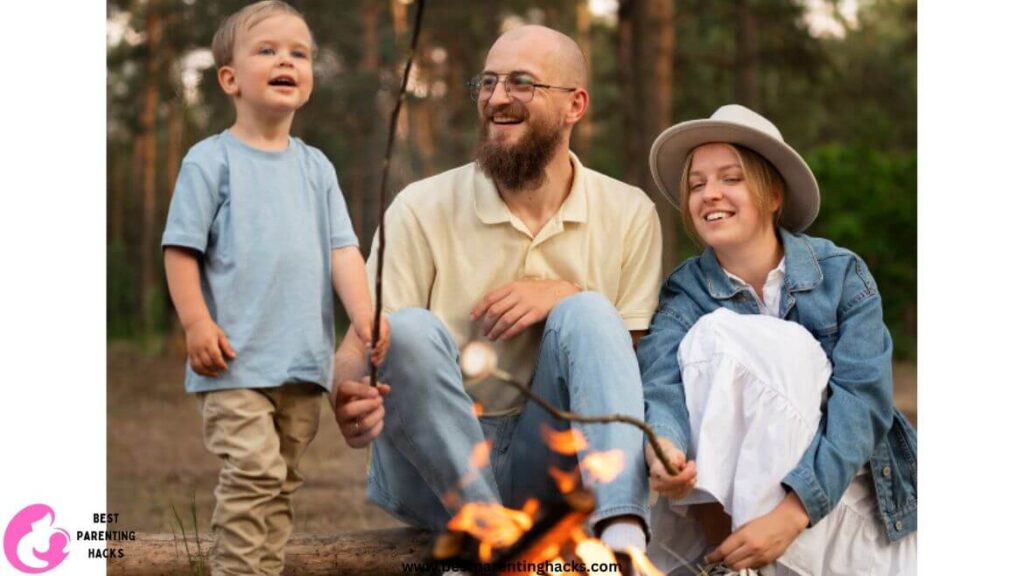
Precautionary Measures
Precautions are a must when thinking about having a campfire near a newborn.
1. Keep a Safe Distance: Make sure that both you and your infant are situated far enough away from the flames to prevent direct heat and smoke exposure.
2. Monitor Air Quality: Pay attention to the direction of the wind and the movement of smoke. It’s advisable to leave the burning area if the air quality worsens.
3. Wear Protective Gear: If required, use a baby mask to filter air and baby earmuffs to safeguard your child’s hearing.
4. Minimize Time Exposure: To lower the possibility of any negative effects, spend as little time as possible near the blaze.
5. Emergency Preparedness: Always keep a first-aid kit available and plan a swift departure in case of an emergency.
You Might Also Like to Read: Why Does My Baby Gasp for Air When Excited?
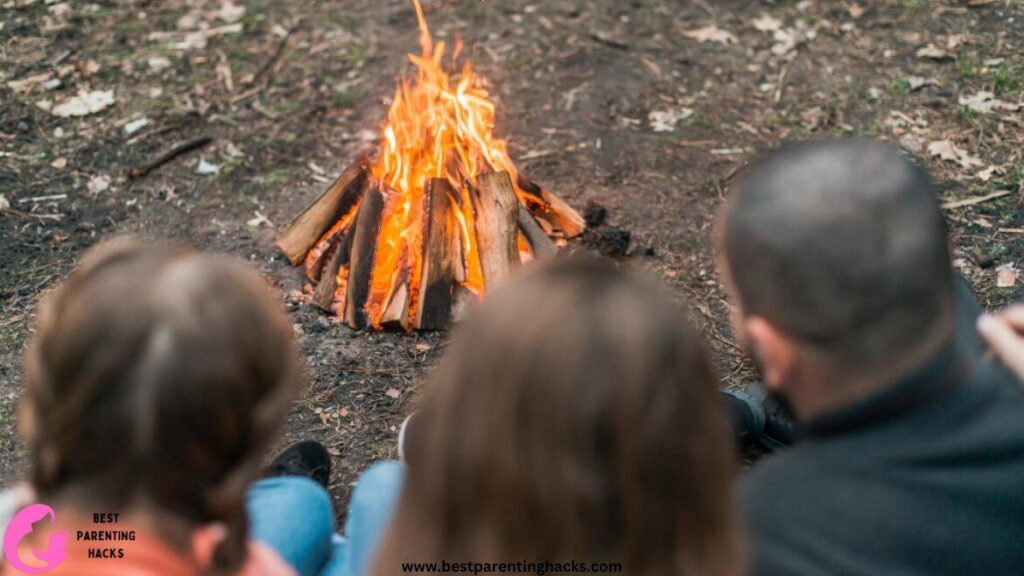
Alternatives to Bonfires for Babies
1. Stargazing: A calm substitute free from the dangers of smoking and noise, stargazing may be a fascinating experience for infants.
2. Outdoor Picnics: For a laid-back family picnic, pick a picturesque location away from fire and smoke concerns.
3. Nature Walks: Take your baby for strolls around the outdoors to safely introduce them to the wonders of nature.
4. garden Camping: Tent camping in your garden offers a regulated setting that simulates a camping trip without the dangers of a bonfire.
Expert Opinions
In general, doctors and child safety specialists advise against exposing infants to bonfires, particularly during their early months of life. Most people agree that the dangers are greater than the rewards. Parents who have gone through bonfire celebrations with their infants frequently talk about the difficulties and safety measures they have to take. These firsthand accounts, along with professional guidance, provide a thorough knowledge of the effects of bonfires on the health and safety of infants.
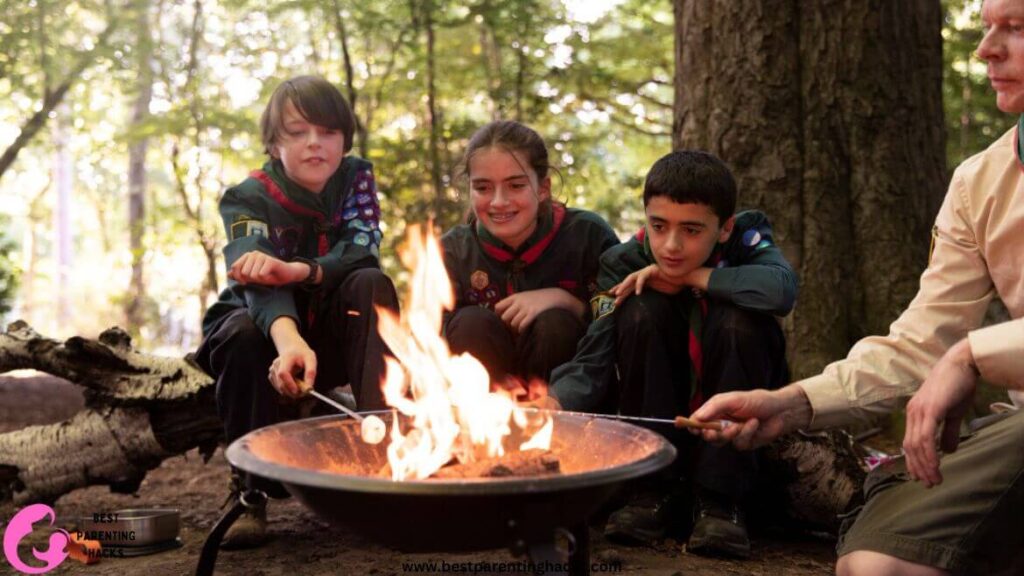
Conclusion
In conclusion, although a great part of being outside, bonfires are not the best places for a newborn to be around. It is best to wait until kids are older and better used to such environments because of the risks related to smoke inhalation, loud noises, and environmental dangers. Taking care of our children’s safety and well-being is our main duty as parents. We may still enjoy the outdoors with our children responsibly and safely by taking into account the recommendations and alternatives that have been addressed.
FAQs
1. Is it okay to have a baby near a bonfire?
• Because of their underdeveloped immunological and respiratory systems, it is typically not advised.
2. Can my infant be harmed by smoke from a bonfire?
• It is true that breathing in smoke can aggravate respiratory disorders like asthma.
3. At a campfire, how can I shield my infant’s hearing?
• Your baby’s ears can be shielded from loud noises by wearing earmuffs.
4. What are some baby-safe outdoor activities?
• Excellent substitutes include stargazing, outside picnics, and nature hikes.
5. When is a good time to introduce my kid to fires?
• With the right safety precautions, it’s usually safer as kids get older, especially once they turn five.

